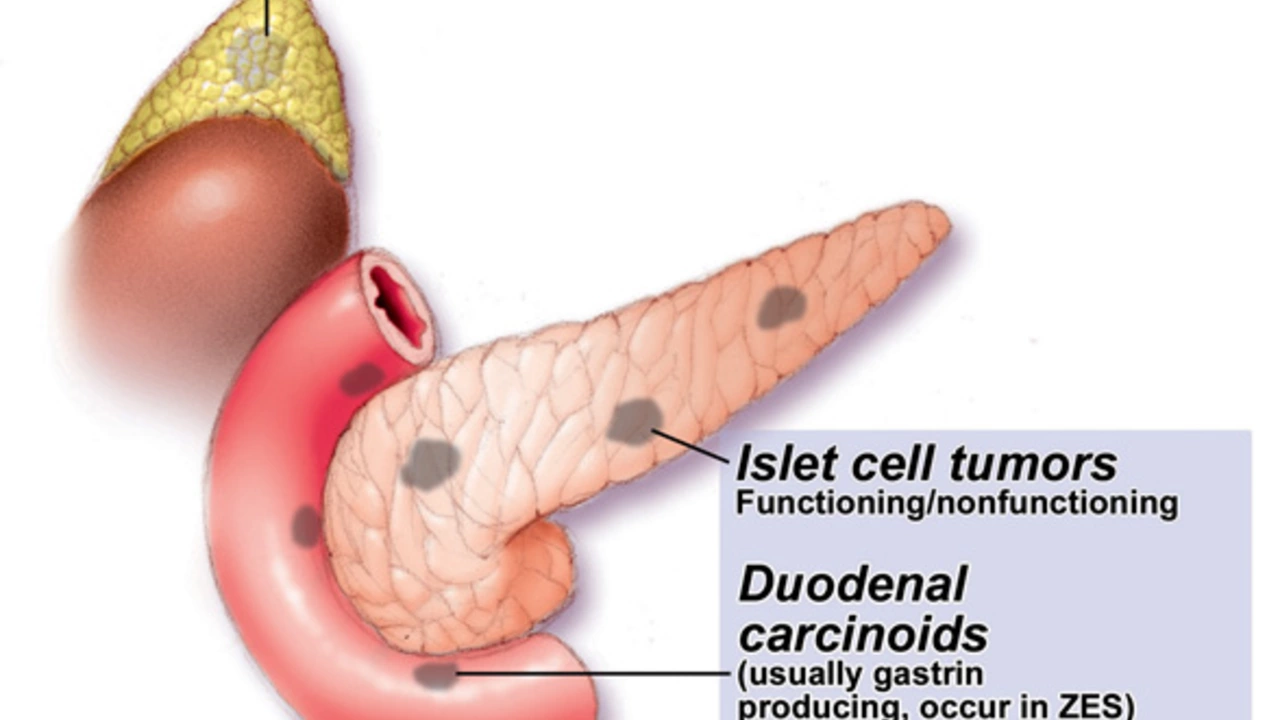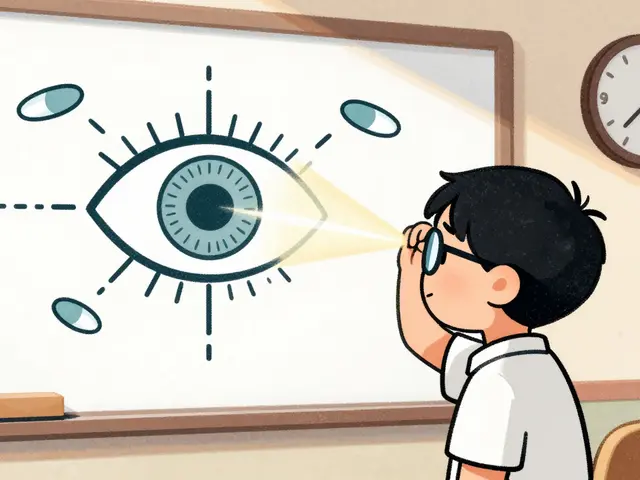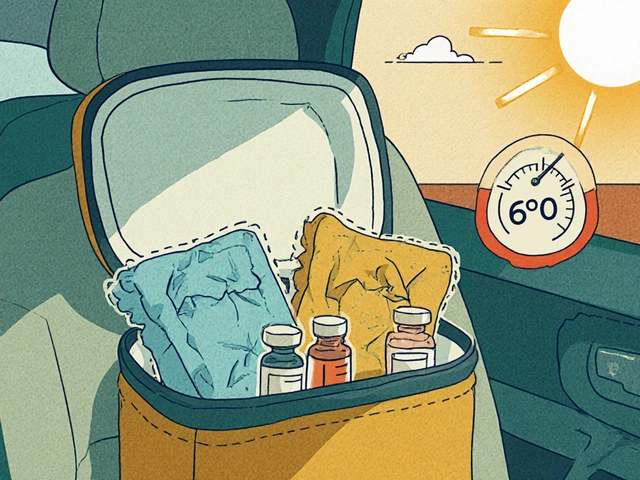Understanding Zollinger-Ellison Syndrome
Zollinger-Ellison Syndrome (ZES) is a rare condition that causes peptic ulcers, abdominal pain, and diarrhea. This condition occurs when one or more tumors form in your pancreas or the upper part of your small intestine (duodenum). These tumors, known as gastrinomas, secrete large amounts of the hormone gastrin, which causes your stomach to produce too much acid. The excessive acid then leads to peptic ulcers and other symptoms.
Recognizing Symptoms of Zollinger-Ellison Syndrome
Early detection is crucial in managing ZES effectively. Some of the common symptoms include abdominal pain, diarrhea, heartburn, nausea, vomiting, and bleeding in the digestive tract. If you experience any of these symptoms and they persist, seek medical advice immediately. A timely diagnosis could lead to early treatment, preventing further complications.
Diagnosing Zollinger-Ellison Syndrome
Diagnosing ZES involves several steps. Your doctor may start with a physical examination, followed by a series of tests to measure the level of gastrin in your body. These tests could include blood tests, endoscopy, and imaging tests like CT scans or MRIs. It's important to cooperate fully with your healthcare provider during this process to ensure an accurate diagnosis.
Medical Treatment Options for Zollinger-Ellison Syndrome
Once diagnosed, your doctor will likely prescribe medications to reduce gastric acid production, such as proton pump inhibitors. In some cases, surgery may be necessary to remove the gastrinomas. If the tumors are cancerous and have spread to other parts of the body, chemotherapy may be required. It's crucial to discuss all the available treatment options with your doctor to choose the one that's most appropriate for your condition.
Living with Zollinger-Ellison Syndrome
Living with ZES can be challenging, but with the right management plan, it’s possible to lead a normal life. You may need to make some lifestyle changes, such as following a specific diet or taking medications regularly. You might also need regular check-ups to monitor your condition. If you're struggling with the emotional aspects of living with ZES, consider seeking support from a mental health professional or a support group.
Natural Remedies and Dietary Changes
While medical treatment is essential, you can also consider natural remedies and dietary changes to manage ZES. These could include increasing your intake of foods that neutralize stomach acid, such as bananas and melons, and avoiding foods that exacerbate acid production, like spicy foods and caffeine. Remember, it's crucial to consult your doctor before making any significant dietary changes or starting any natural remedies.
Research and Future Treatments
Research into Zollinger-Ellison Syndrome is ongoing, and new treatment strategies are continually being developed. Some of the most promising research areas include gene therapy and immunotherapy. By staying informed about the latest research, you can discuss these potential treatments with your doctor and decide if they might be appropriate for you. Remember, while future treatments may offer hope, it's crucial to focus on managing your condition with the resources currently available.








19 comments
Michael Lynch
I've known a few people with ZES, and honestly, the biggest game-changer was just sticking with the PPIs. Not glamorous, but it works.
My uncle went from bedridden to hiking again in 6 months. Just don't skip doses.
caroline howard
Oh sweet mercy, another post about 'natural remedies' like eating bananas like it's some kind of medieval cure.
Meanwhile, people are dying because they swapped omeprazole for 'alkaline diets'.
Matthew King
man i had a cousin with this. doc said it was like having a volcano in your stomach.
he started on pantoprazole and it was night and day. still gotta watch what he eats though.
Melissa Thompson
This article is dangerously naive.
There is no such thing as 'natural management' of gastrinomas - that’s a death sentence disguised as wellness advice.
And you dare mention 'dietary changes' without citing the 2018 NEJM guidelines?
Who wrote this? A TikTok influencer?
Proton pump inhibitors are the baseline - period.
Any suggestion otherwise is malpractice wrapped in organic hemp.
Meredith Poley
Wow. Bananas. Of course. Because if you just eat more fruit, your tumor will politely stop secreting gastrin.
Meanwhile, the rest of us are on 80mg of esomeprazole daily and still getting heartburn.
Thanks for the laugh, OP.
Bhanu pratap
I’ve lived with ZES for 12 years. I was diagnosed after collapsing in a temple in Kerala - the pain was like fire in my chest.
Doctors didn’t believe me until my gastrin levels hit 1,200.
Now I take rabeprazole twice daily, avoid anything spicy, and pray every morning.
It’s not a lifestyle. It’s a war.
But I’m alive. And that’s enough.
Joe Puleo
Just want to say - if you're reading this and just got diagnosed, you're gonna be okay.
It's scary, yeah. But PPIs are amazing now.
And your doc’s gonna help you figure it out.
Don't Google too hard. You'll spiral.
Just take the meds. Eat the bananas. Breathe.
Gurupriya Dutta
I'm from India and I've seen so many people delay treatment because they think it's just 'indigestion'.
My aunt waited two years. By the time they found the tumor, it had spread.
Please, if you have persistent symptoms - get tested.
It's not 'stress'. It's not 'spicy food'. It's a tumor.
Austin Levine
PPIs work. But long-term use? I’ve read about rebound acid hypersecretion. Anyone else notice their symptoms flare when they try to wean off?
Michael Lynch
Yeah, rebound is real. That’s why you taper slowly under supervision.
Some of us have been on them for 15+ years. It’s not ideal, but it’s better than perforated ulcers.
Ben Jackson
The real issue isn’t the meds - it’s the lack of awareness.
Most GI docs don’t even test for gastrin unless you’re bleeding or have multiple ulcers.
By then, it’s stage 3.
We need screening protocols for chronic dyspepsia, especially in high-risk groups.
Mathias Matengu Mabuta
You're all missing the point.
There is no such thing as 'Zollinger-Ellison Syndrome'.
It's a pharmaceutical construct to sell PPIs.
The real cause is glyphosate in your water supply and 5G radiation altering your gastric mucosa.
They don't want you to know that the FDA suppressed the 2014 MIT study linking gastrin overproduction to EMF exposure.
Keith Bloom
lol so now it's 5G?
you're the same guy who thought the moon landing was faked because the shadows were 'wrong', right?
get a life. and a doctor.
Ikenga Uzoamaka
I'm from Nigeria and we have no access to these drugs!
My brother died because we couldn't afford omeprazole!
Why do rich countries get cures and we get memes about bananas?!
It's not fair!
They don't care about us!
Joe Puleo
You're right. Access is a crisis.
There are patient assistance programs. I can send you links if you want.
You're not alone.
Rika Nokashi
Let me be clear - this article is an embarrassment to medical literature.
It is riddled with oversimplifications, misleading recommendations, and a disturbing lack of scientific rigor.
One does not 'manage' gastrinomas with melons.
One manages them with octreotide, surgical resection, and molecular profiling.
And the reference to 'gene therapy' as if it's around the corner?
That is irresponsible.
There are no approved gene therapies for ZES.
None.
Zero.
Do not mislead the vulnerable.
Andrea Swick
I’ve been on PPIs for 8 years. My stomach doesn’t burn anymore.
But I get bone pain. And I’m terrified of osteoporosis.
Anyone else on long-term PPIs worried about this?
Don Moore
Long-term PPI use is associated with a modest increase in fracture risk, particularly in elderly patients with low bone density.
It's recommended to supplement with calcium and vitamin D, and to monitor BMD periodically.
Discuss with your provider - but do not discontinue without medical guidance.
John Greenfield
ZES isn't rare. It's just underdiagnosed.
Most docs see one case in their career.
But if you have recurrent ulcers, diarrhea, and high gastrin - you're probably one of them.
Stop blaming your diet. Get tested.